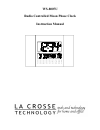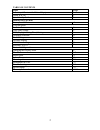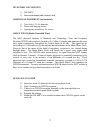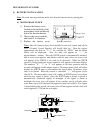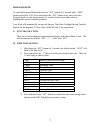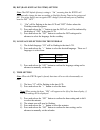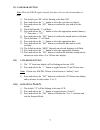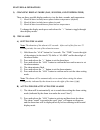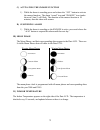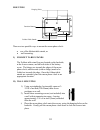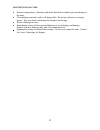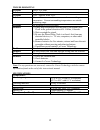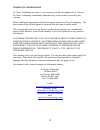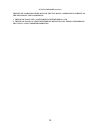Summary of WS-8007U
Page 1
Ws-8007u radio controlled moon phase clock instruction manual.
Page 2
2 table of contents topic page inventory of contents/ additional equipment 3 about wwvb 3 quick set-up guide 3 detailed set-up guide battery installation 4 program mode function buttons 5 time zone setting 5 dst (daylight saving time) setting 6 language selection 6 time setting 6 calendar setting 7 ...
Page 3
3 inventory of contents 1) ws-8007u 2) instruction manual and warranty card. Additional equipment (not included) 1) two fresh 1.5v aa batteries. 2) three wall-hanging screws. 3) appropriate screwdriver for screws. About wwvb (radio controlled time) the nist (national institute of standards and techn...
Page 4
Detailed set-up guide i) battery installation note: to avoid start-up problems make sure that the batteries do not spring free. A) moon phase clock 1) remove the battery cover, located on the backside of the moon phase clock and directly below the function buttons. 2) observe the correct polarity, a...
Page 5
5 program mode to enter the program mode hold down the “ set” button for 2 seconds until “-5est” flashes in the date lcd. Press and release the “ snz” button at any time to exit the program mode, or wait approximately 15 seconds for the moon phase clock to automatically return to normal operation. Y...
Page 6
6 iii) dst (daylight saving time) setting note: the dst default (factory) setting is “on”, meaning that the wwvb will automatically change the time according to daylight saving time in the spring and fall. For areas that do not recognize dst changes (arizona and parts of indiana) turn the dst “off”....
Page 7
7 vi) calendar setting note: when the wwvb signal is found, that date will over-ride the manually set date. 1) the default year “00” will be flashing in the date lcd. 2) press and release the “+” button to select the year (last two digits). 3) press and release the “set” button to confirm the year a...
Page 8
8 features & operations i) changing display mode (day, seconds, and temperature) there are three possible display modes to view the date, seconds, and temperature: 1) month & date/weekday/moon phase/indoor temperature (default) 2) month & date/weekday/moon phase/second. 3) month & date/seconds/moon ...
Page 9
C) activating the snooze function 1) while the alarm is sounding press and release the “snz” button to activate the snooze function. The alarm “sound” icon and “snooze” icon (under the word “time”) will flash. The duration of the snooze function is 10 minutes, then the alarm will resume. D) suspendi...
Page 10
Mounting there are two possible ways to mount the moon phase clock: • use of the foldout table stands, or function buttons foldout table stands hanging holes 10 • wall mounting. I) foldout table stands the foldout table stand legs are located on the backside, at the lower corners, and on both sides ...
Page 11
11 • maintenance & care • extreme temperatures, vibrations, and shock should be avoided to prevent damage to the units. • clean displays and units with a soft, damp cloth. Do not use solvents or scouring agents—they may mark and damage the displays and casings. • do not submerge in water. • immediat...
Page 12
12 troubleshooting problem: the lcd is faint. Solution: replace the batteries. Problem: “ofl” appears in the lcd. Solution: move unit to an area with warmer or cooler surrounding temperature. Current surrounding temperatures are outside measuring range. Problem: no reception of wwvb signal. Solution...
Page 13
13 warranty information la crosse technology provides a 1-year warranty on this moon phase clock. Contact la crosse technology immediately upon discovery of any defects covered by this warranty. Before sending the moon phase clock in for repairs, contact la crosse technology. The moon phase clock wi...
Page 14
14 fcc id: omo-01rx (receiver) this device complies with part 15 of the fcc rules. Operation is subject to the following two conditions: 1. This device may not cause harmful interference, and 2. This device must accept interference received, including interference that may cause undesired operation..

